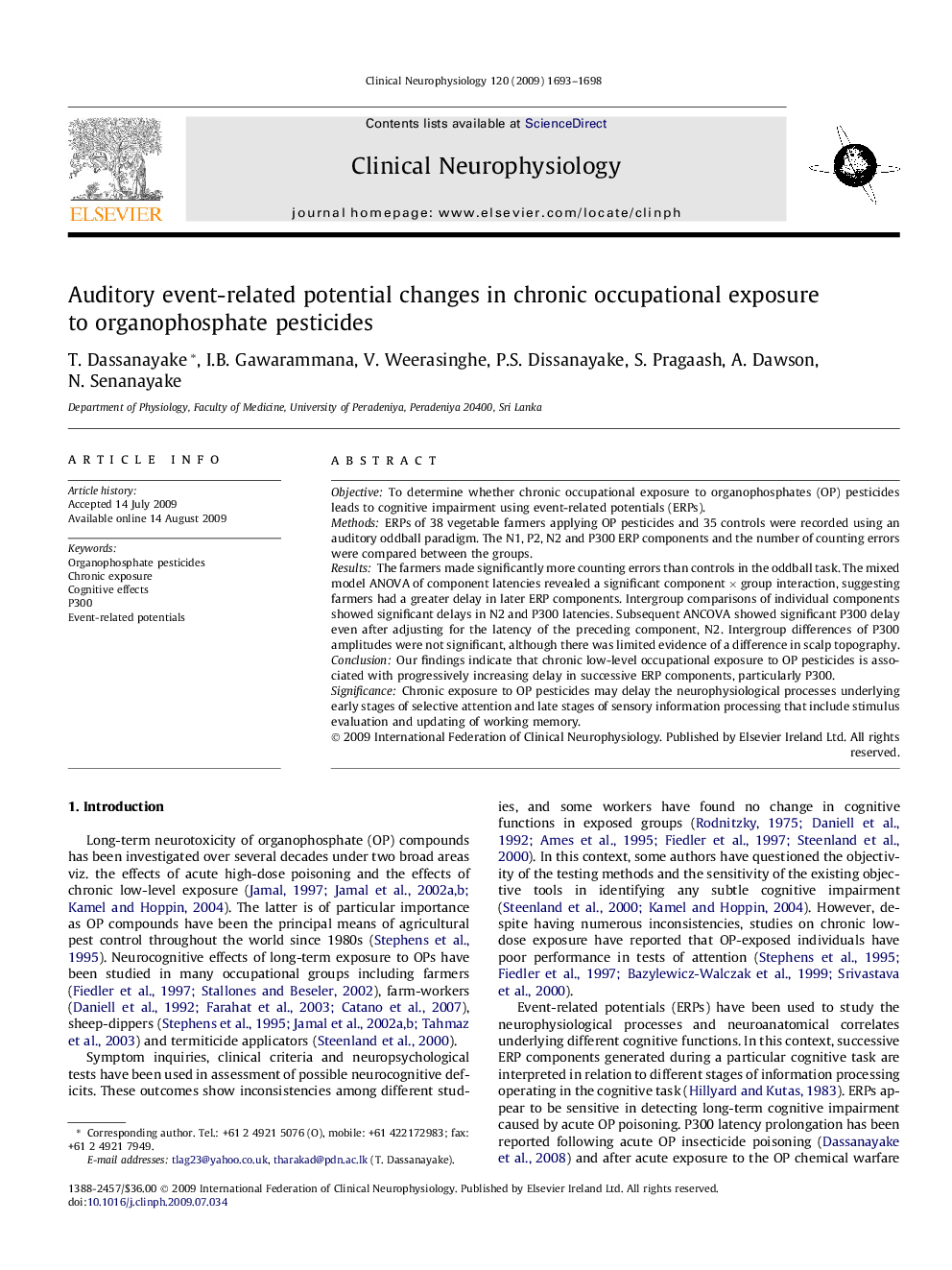| Article ID | Journal | Published Year | Pages | File Type |
|---|---|---|---|---|
| 3046399 | Clinical Neurophysiology | 2009 | 6 Pages |
ObjectiveTo determine whether chronic occupational exposure to organophosphates (OP) pesticides leads to cognitive impairment using event-related potentials (ERPs).MethodsERPs of 38 vegetable farmers applying OP pesticides and 35 controls were recorded using an auditory oddball paradigm. The N1, P2, N2 and P300 ERP components and the number of counting errors were compared between the groups.ResultsThe farmers made significantly more counting errors than controls in the oddball task. The mixed model ANOVA of component latencies revealed a significant component × group interaction, suggesting farmers had a greater delay in later ERP components. Intergroup comparisons of individual components showed significant delays in N2 and P300 latencies. Subsequent ANCOVA showed significant P300 delay even after adjusting for the latency of the preceding component, N2. Intergroup differences of P300 amplitudes were not significant, although there was limited evidence of a difference in scalp topography.ConclusionOur findings indicate that chronic low-level occupational exposure to OP pesticides is associated with progressively increasing delay in successive ERP components, particularly P300.SignificanceChronic exposure to OP pesticides may delay the neurophysiological processes underlying early stages of selective attention and late stages of sensory information processing that include stimulus evaluation and updating of working memory.
